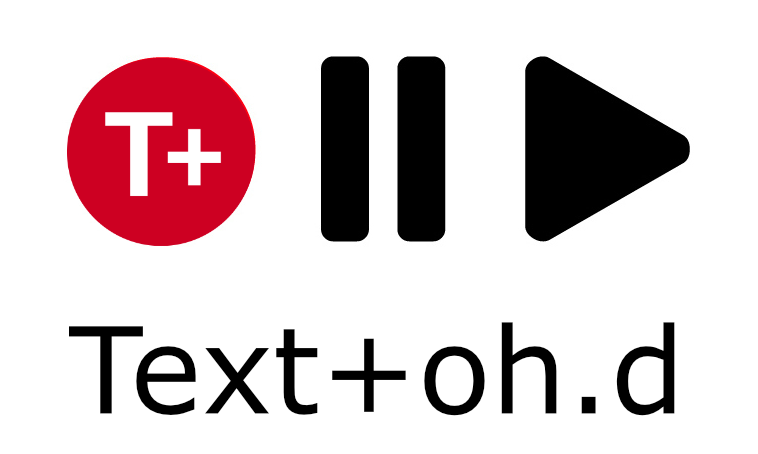oh.d is now part of Text+-data- and competence center
News from Mar 14, 2025
The interview portal “Oral-History.Digital” and the “Digital Interview Collections” section of the University Library of Freie Universität Berlin are now part of the data and competence centers of the linguistic consortium “Text+” of the National Research Data Infrastructure (NFDI).
Freie Universität Berlin has been a member of the linguistics consortium “Text+” of the National Research Data Infrastructure (NFDI) since January 2025. As one of 26 scientific consortia within the NFDI, “Text+” promotes the sustainable use of language- and text-based research data in various disciplines.
The “Text+” consortium, led by the Leibniz Institute for the German Language (IDS) in Mannheim, brings together various data and competence centers from universities and academies in the areas of corpora and text collections, lexical resources, editions and infrastructure. Data centers are partner institutions of Text+ that focus on the collection, storage, management and provision of research data. Competence centers contribute their expertise to the development of Text+ services and offer support in specific areas.
The “Digital Interview Collections” team at the University Library of Freie Universität Berlin is a competence center for oral history. Together with researchers from Freie Universität Berlin and external partners, it develops interactive research and learning environments for oral history collections (https://www.fu-berlin.de/dis). In addition to National Socialism and the Holocaust, topics include interviews on the history of Freie Universität, the GDR border regime, church asylum and the German sect settlement “Colonia Dignidad” in Chile. The team's expertise covers the entire process, from conducting interviews, collection management, (automatically supported) transcription and scientific indexing to the digital provision and didactic preparation of oral history interviews.
The Oral-History.Digital interview portal is a data center for audiovisual research data from oral history. In this indexing and research platform, researchers and other interested parties can search the interview collections across all collections using filter and full-text searches. Interview projects in museums, universities or foundations can upload their audio and video interviews with accompanying materials and edit them with tools for transcription or indexing. Currently, “Oral-History.Digital” lists 42 archives with 4098 interviews from 46 different institutions (https://www.oral-history.digital/).
In the project “Text+ interfaces to the interview collections in Oral-History.Digital”, or “Text+oh.d” for short (https://www.fu-berlin.de/text_ohd), the University Library of Freie Universität Berlin is making numerous interviews from the “Oral-History.Digital” portal accessible in the “Text+” infrastructure. Through the further development of interfaces and the standard-compliant transformation of transcripts, extensive corpora from everyday oral language can be reused by the text- and language-based research communities. On the one hand, the metadata of interview collections will be indexed in the Text+ catalog via an OAI interface; on the other hand, interview transcripts will be made available in the widespread ISO standard for spoken language of the Text Encoding Initiative (TEI) with the appropriate access authorization. In this way, Freie Universität Berlin supports interdisciplinary cooperation between history and linguistics.
Freie Universität Berlin also participates in the NFDI in the geosciences consortium NFDI4Earth, in the history consortium NFDI4Memory and in the overarching NFDI association. The NFDI aims to make decentralized, project-based and temporarily stored research data systematically accessible to the scientific community. According to the FAIR principles (findable, accessible, interoperable, reusable), research data should be sustainably findable, accessible, linkable and reusable.
Further Information
- Website of “Text+ohd”: https://www.fu-berlin.de/text_ohd
- Website of “Text+”: https://text-plus.org/en/
- Website of “Oral-History.Digital”: https://www.oral-history.digital/en/index.html

